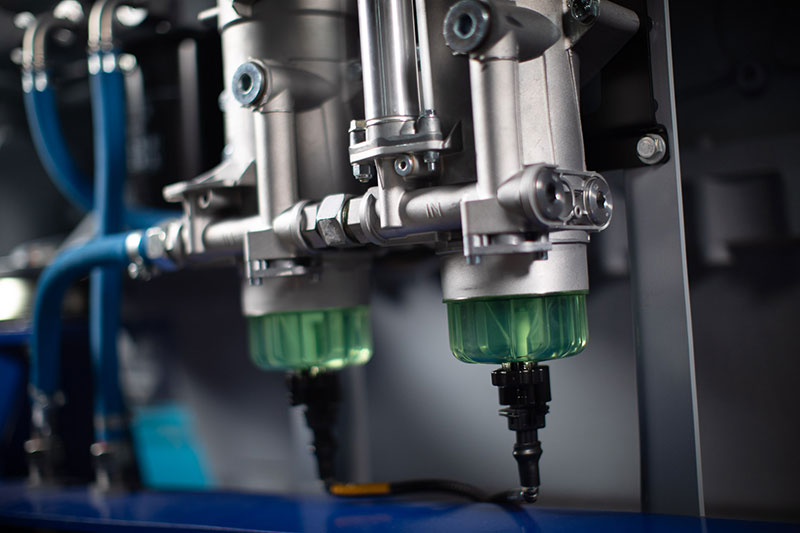
HVO
Sustainable energy – reduced environmental impact
With a 90% decrease in emission, HVO, derived from waste fats and oils, significantly reduces your environmental impact.
Choose HVO, make your business a catalyst for positive change and contribute to a cleaner, greener future.
A Shift From The Traditional To The Sustainable
Hydrotreated Vegetable Oil (HVO) is a groundbreaking solution in the domain of sustainable fuels. Derived from waste vegetable and animal fats, as well as used vegetable oils, HVO goes through a catalytic reaction with hydrogen, transforming these base materials into hydrocarbons. This resultant fuel is a versatile substitute for fossil fuels like diesel.
HVO is not only a fuel alternative; but an important shift away from traditional, environmentally taxing options. Its importance lies in significantly reducing particulate matter (PM) emissions by up to 80%, curbing harmful pollutants by up to 8%, and reducing carbon emissions by up to 90% compared to traditional fossil diesels.
HVO directly addresses the escalating challenges with air pollution, climate change, and the need to decarbonize certain sectors, such as the marine industry. By utilizing waste and residual biomass as base materials, HVO ensures sustainable production without competing with food resources. You can tackle your critical issue of emissions reduction whilst paving the way towards cleaner, more responsible energy sources.
90% Decrease in Emissions
Your benefits from HVO are multi-faceted and impactful. HVO requires no adjustments for most diesel engines approved for its use. Its storage stability surpasses that of other biodiesel options, making it particularly attractive for standby power systems.
Also, HVO does not result in reduced power output while achieving a 90% decrease in emissions.
The Path To A Sustainable Future
In essence, HVO is not just a fuel; it's a catalyst for sustainable business. By offering a cleaner, greener alternative, HVO helps you contribute to a future where emissions are significantly reduced.

With the Technology of Tomorrow
Traditional fossil fuels contribute to air pollution, climate change, and carbon emissions. Whilst alternatives in use today like biodiesel options often face challenges such as reduced storage stability.
To overcome these hurdles and embrace a more sustainable future, you can consider replacing traditional diesel with Hydrotreated Vegetable Oil (HVO). You can not only address emissions reduction but also ensure a versatile and efficient substitute for fossil fuels without compromising your power output.

Case study
Reduce Emissions Without Sacrificing Performance
Unlock your potential with:
- Sustainability: Discover how EcoDataCenter reduces environmental impact with HVO100.
- Innovation: Learn about the collaboration with Elektromatik and Rolls Royce Power Systems for a future-proof power solution.
- Efficiency: See how clean energy ensures continuous, efficient operations.
- Technical Insights: Explore the technical analysis and performance warranties supporting HVO100.
- Reliability: Understand the benefits of a redundant topology and high-quality products.
- Expertise: Get insights from EcoDataCenter CTO Mikael Svanfeldt on integrating mtu engines and addressing technical queries.


